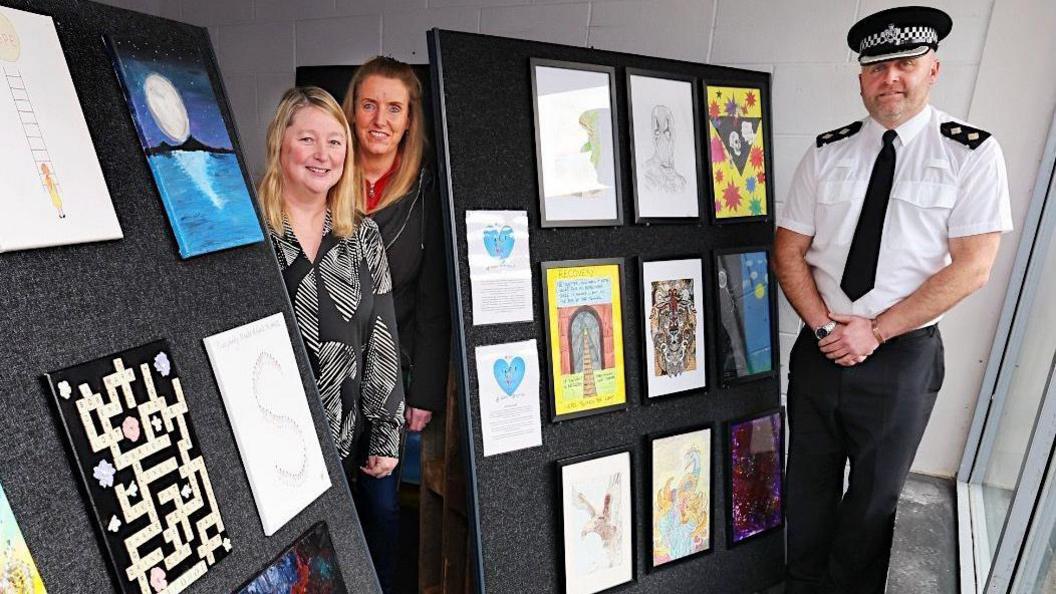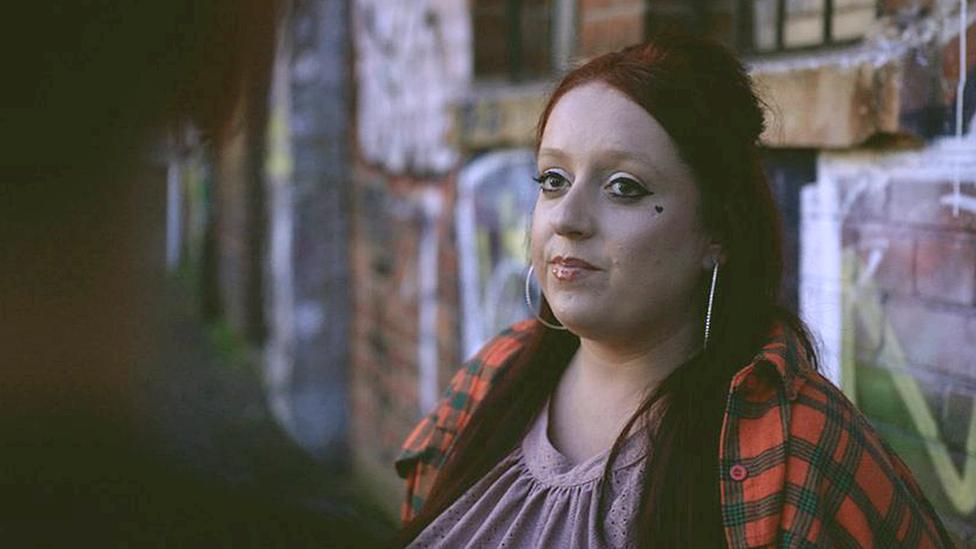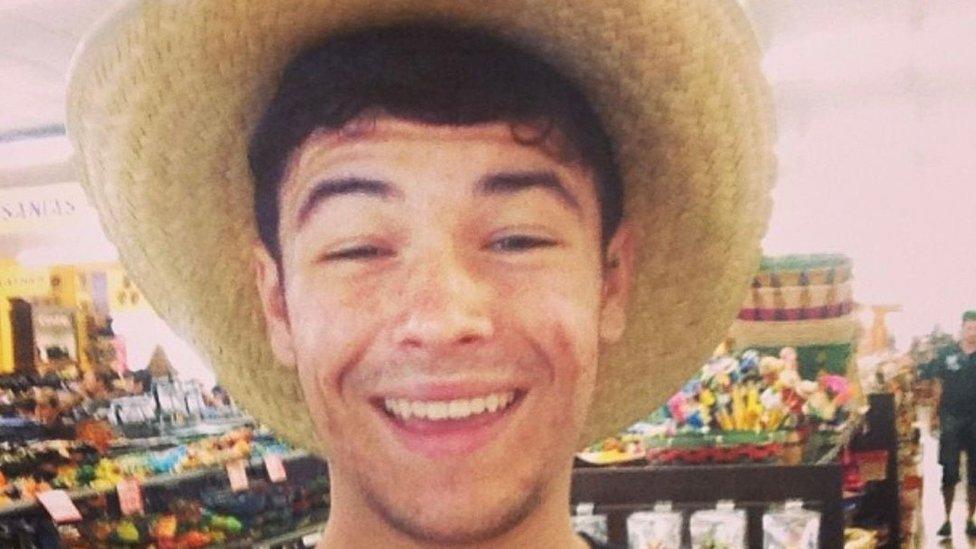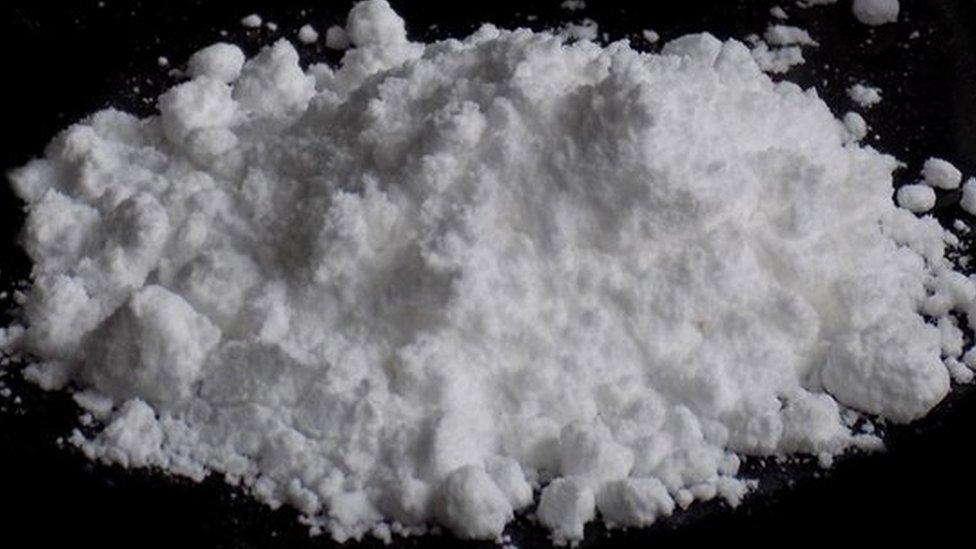Children 'needing urostomy bags' due to drug use

Kelly Smith (centre) from the Change, Grow, Live (CGL) recovery service, pictured with artist Amanda Murphy and Merseyside Police Inspector Alan McKeon at the launch of the We Got HeART exhibition
- Published
Ketamine use in Merseyside has "got so bad that young children are ending up with urostomy bags", a drug and alcohol support worker in Merseyside has warned.
Kelly Smith, from the Change, Grow, Live (CGL) recovery service in Kirkby, said use of the drug was "a massive problem and increasingly common".
She said the service, which covers Knowsley, was aware of young people using ketamine who were "not understanding what it is" and who were becoming dependent on it.
Speaking at the launch of an art project for addicts in recovery she said: "It’s got so bad that young children are ending up with urostomy bags and things like that because it does cause serious bladder issues."
Ms Smith added: "I think for a young person, they’re not necessarily aware of the lifelong impact that drug use can have on a person."
'A crutch'
Ketamine is a medication used by doctors and vets for pain control.
The latest government figures , external estimate that use of the drug in England and Wales has more than doubled since 2016.
In the under-25 age group, its use has more than tripled in the same period, the government said.
Chronic ketamine usage affects the lining of the bladder and can shrink it.
Kelly Smith was speaking at the opening of the We Got HeART (WGH) exhibition in a unit on St Chad's Parade in the town centre.
The art project, which aims to divert people away from substance use and into support services, is led by Merseyside Police and CGL Knowsley, the Local Democracy Reporting Service said.
One of the artists exhibiting is Amanda Murphy who said she began to use alcohol as a "crutch" after a difficult period in her life.
She was referred to CGL after developing liver disease and is now in recovery.
“I was nervous when I first went in but they soon surrounded me and and showed me the love, as it were," she said.
Inspector Alan McKeon, from Merseyside Police’s Prevention Hub, said the project "truly shows the value of prevention and addressing the root causes of problems, not the symptoms of it".
Listen to the best of BBC Radio Merseyside on Sounds and follow BBC Merseyside on Facebook, external, X, external, and Instagram, external. You can also send story ideas to northwest.newsonline@bbc.co.uk, external and via Whatsapp to 0808 100 2230.
Related topics
More like this story
- Published19 April 2024

- Published20 April 2024

- Published30 March 2024
